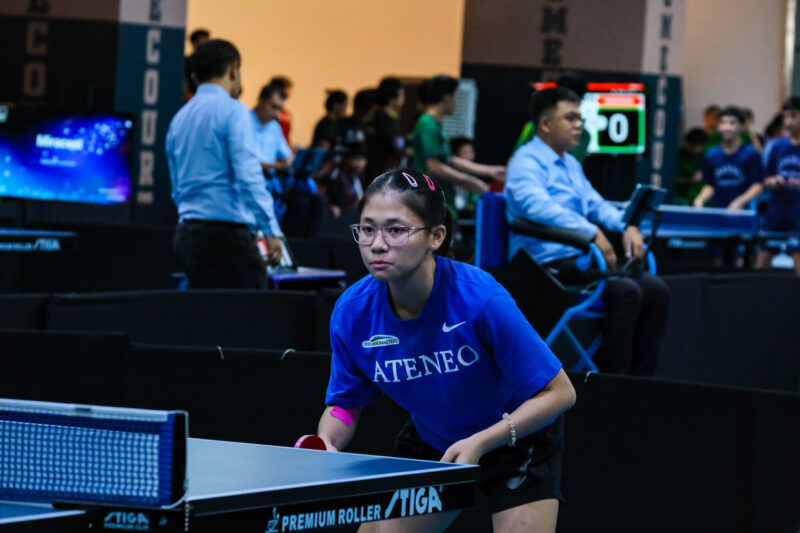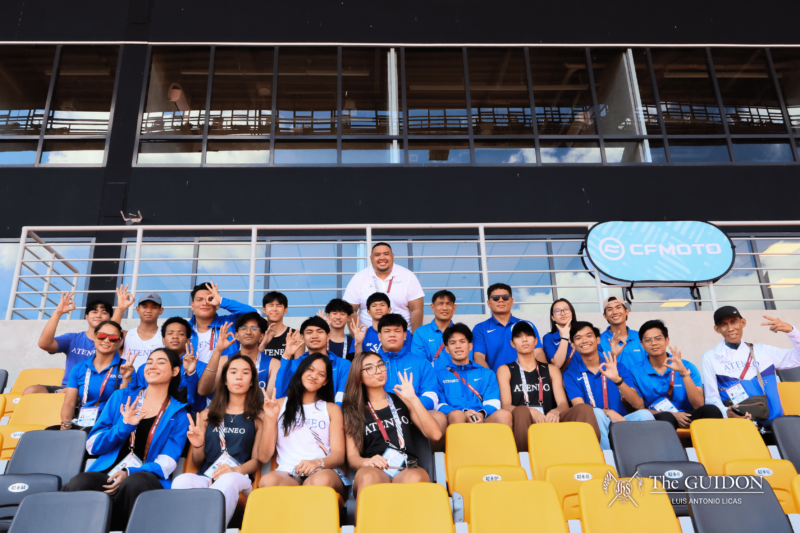For working parents in the Ateneo, the university as a whole is far from family-friendly. “There is a breastfeeding room, but I remember that that’s where they do the drug testing, and I don’t want my kid there. Or it’s like a clinic extension, but I feel like all the viruses are there,” shares Frances Doplon, English Instructor and mother. Doplon’s experience is only one of the numerous others that lay bare the university’s lack of proper childcare facilities.
The same dearth is present for the majority of workplaces in the Philippines. Albeit how the Department of Labor and Employment has called on companies and corporations to establish workplace child care centers as early as 2008, no legislation has been passed to enforce mandatory facilities among businesses, leading to difficulties for Doplon and other working parents like her. While there is an existing law that encourages workplace child care, namely, RA 8980 or the Early Childhood Care and Development Act—which incentivizes employers who provide corporate-based daycare centers by deducting operating costs from their taxable income, so long as they do not charge their employees user fees—a number of employers, including the Ateneo, still opt to forego proper facilities altogether.
It has been five years since former president and current congresswoman Gloria Macapagal Arroyo and her son, Rep. Diosdado Macapagal Arroyo sought to resolve this by amending Article 157 of the Labor Code, so that it would oblige employers with 150 workers or more to provide workplace crèches. Unfortunately, the bill has since been pending. With this in mind, workers who plan on bringing their child to work, either nominally or as forced by circumstance, have to plan otherwise, make do with whatever their employer provides, or simply stop working to better care for their child. Any which way, workers are hard-pressed to make a sacrifice, be it the development of their child or their employment.
Considering the Ateneo’s mission as a bastion of social justice, one would think that its employees would not have to face such a decision. It would not be farfetched to assume that the university, with its numerous theology and philosophy classes that dignify the laborer, would adequately provide for its working parents. However, as revealed in the experiences of Doplon and others like her, this may not be the case.
Children at work
In the Ateneo, it is evident that facilities for childcare in the work setting are absent. It is not uncommon for many of us to enter a program department and encounter little children roaming the cubicles. For Frances Doplon, bringing her 18-month-old son Jaime to school was a decision she and her husband made as parents who wanted to keep a close eye on their first-born. In addition, breastfeeding makes it a necessity to be near her son even though she is at work.
Olivia Buenafe, Instructor at the Chemistry Department, has made the same decision regarding bringing her infant to work after she gives birth. She says, “Interviewing possible yayas is already a hassle (at best)…and with all the horror stories about negligence we hear from friends and relatives.”
Doplon is moved by the warm reception both the English faculty and the Ateneo community have shown towards her son. Because of the absence of an official daycare facility for the children of faculty and staff, Doplon says that English Department chair Danilo Reyes, as agreed upon by the entire department, converted one of the empty rooms into a playroom and rest area for her son. The room is clean and comfortable, with colorful mats, toys, and photos scattering the walls.
Initially, Doplon tried to inquire about daycare facilities the Ateneo offers its faculty. “I was surprised to get a call from HR. They said, ‘We don’t have a room for you; I’m so sorry.’ So buti na lang there was an available room,” she says. However, Doplon asserts that other faculty and staff who are also parents that need to bring their children to school may not be as lucky as she is.
For instance, Donna Manuel, Secretary at the Theology Department, also brings her eight-month-old daughter to work. However, she shares, “Some of my work colleagues [who are moms] do their breast pumping in a vacant room only which is a little bit uncomfortable on their part because they have to [do it quick] for the room might be used by other people or faculty. Also, some working mom[s] let their sons sleep…under the counter table if there’s no available [couch]. They just bring some floor pad and throw pillow.”
Doplon adds, “Siyempre, nahihiya rin naman ako. I know people want us here in this office, but they might be affected by Jaime. There needs to be a designated daycare area, not just for faculty but also for staff. For everyone, all the kids. There’s a daycare for these kids in Miriam and in UP. The university would a better place with a daycare.”
Buenafe says that having daycare facilities for the children of faculty and staff in the Ateneo is long overdue. “Based on our personal experience in graduate school in Europe, universities had daycare crèches set up for everyone in the university—personnel, staff, professors, even students—for a small fee,” she explains.
Jackie and Roy Tolentino, faculty members at the Philosophy Department, likewise wish for better facilities for their child Mio who they first started bringing to work at two months old since, as Jackie shares, “We wanted to care for Mio ourselves.” Resonating with the sentiments of other working parents, Jackie describes the childcare facilities in the university as “[sadly] nonexistent.” However, she remains grateful that the philosophy department is “relatively family-friendly.” For her partner, Roy expresses that, “Every department has its own culture regarding children.”
For mothers, fathers
When asked about her experience of the Ateneo’s maternity policies, Doplon states, “It was pretty much hassle-free. My pay was compensated. And then recently I got a check from SSS which means that when I got paid by Ateneo, baka inabono pa nila muna. That’s very generous on Ateneo’s part.”
Similarly, Manuel shares, “I think that the maternity policies of Ateneo are well crafted and implemented.” She is also thankful for the recently approved RA 7322, saying that newly passed Expanded Maternity Leave Law’s 120-day maternity leave will benefit a lot of mothers.
Meanwhile, Jackie describes the university’s maternity policies as “better than most, but not great.” She explains: “Giving birth, for example, is not covered by our health benefits. The maternity leave included breaks and holidays, too, so mine was eaten up by the Christmas break. Still helpful, though. And again, better than most.”
Buenafe argues that the maternity policy of the Ateneo can still be improved. “The good part of Ateneo’s maternity policies is that they work with SSS and PhilHealth policies with regards to maternity notifications, leaves and benefits, with a bit of leeway,” she says. “Things to be improved would be to perhaps check into the health insurance policies for married female employees. Imagine our surprise when we learned that… prenatal check-ups are the only things covered by the insurance policy provided to Ateneo employees!”
Apparently, childbirth, whether natural or C-section, as well as the typical prenatal lab exams and ultrasounds are not included in the insurance offered by the Ateneo. “This information surprised us since we’ve heard from couples working in industry (or involved in corporate work)—we met them in our Lamaze classes—that their companies’ insurance plans covered everything,” continues Buenafe.
On the other hand, fathers have much less benefits compared to their women counterparts. Roy shares, “Paternity leave is only seven days, so most dads really end up not spending enough time with their spouses/partners and their newborn.” This coincides with RA 8187 or the Paternity Leave Act, meaning that the Ateneo only follows the bare minimum of benefits for working fathers.
Parenting solutions
While Jackie acknowledges that university offices are family-friendly, the university as a whole needs to improve. Jackie calls for “a radical shift in university priorities.” As of now, she states, “In the eyes of the university—on the institutional level—it’s employees are and should be employees first, and then parents second.” Though Roy claims that “[there] are changes in the works, such as a planned daycare center,” when asked about this, the Office of Human Resource Management and Organization Development was not able to respond.
Meanwhile, Doplon believes that having a designated daycare area on campus is feasible. For instance, there are rooms in CTC that are not being used. As for manpower, psychology or education students are capable of operating the facility; even certain student organizations can incorporate it into their organization’s advocacy and projects. She further suggests that if smaller institutions like the Philippine Science High School (where Doplon used to work) could afford a daycare facility despite budget constraints then the Ateneo should be able to as well. She says, “It’s not a necessity, but it would be a good option; it would be the right thing to do. There are reasons for it, such as maintaining the female talent and faculty and staff of the school.”
Manuel echoes this sentiment suggesting that, “the school can provide some nursing house ordaycare center for their employees within the university like Miriam College [has].” She goes on to say that coordination between the school and the faculty regarding the financing for the daycare facilities may be a step in the right direction. “Most of the employees, especially those who have a child between 1-5 years old gap are willing to impart some financial support [if it’s needed] to the school,” she explains.
With all this in mind, the Ateneo still has a long way to go before it can dignify its working parents beyond the classroom setup. The university is currently lagging behind other institutions when it comes to childcare facilities while its maternity and paternity benefits only fare marginally better. In the end, the Ateneo, in advocating for a more just and equitable treatment of workers, should lead by example. It should give its employees the means to not only work properly but be proper mothers and fathers as well.







